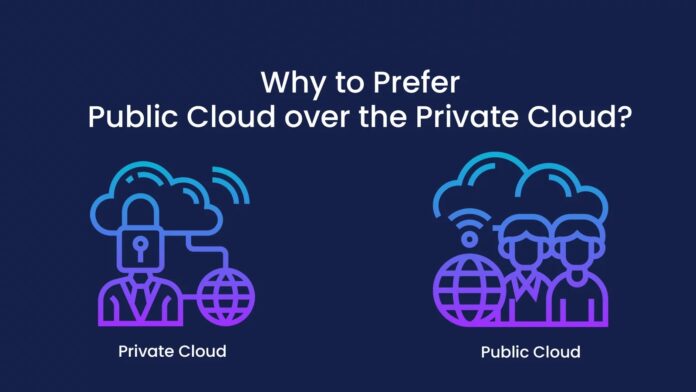When compared to public clouds, how much better is it to use a private one? The solution to this query is still unknown to many customers. It’s feasible that you may use a private cloud right now, even if you don’t know it. Many factors play a role in determining whether or not to use a private cloud service. Your organization’s needs and an analysis of your infrastructure’s ability to support the machines and services your customers expect will decide how you proceed. Before making a decision, think about the various benefits of a private cloud.
However, what precisely is a “private cloud”?
Given how widely it is used, the public cloud might be considered the “mother” of all clouds. It’s important to remember that if you choose to utilise a public cloud, you’ll be sharing the available computing resources with other users, and that allocation will be determined by the needs of other users.
However, since just one business or client is responsible for maintaining the infrastructure of a private cloud, its users enjoy an unprecedented level of security and privacy.
A hybrid cloud is the third option; it combines public and private clouds so that information and programmes stored in one may be accessed from the other.
Private clouds, the third kind of cloud computing, also use the underlying physical computer resources in a virtualized environment. However, because you are in charge of a private cloud, you may utilise your information and programmes in a way that is less visible to others.
For the sake of clarity, let’s go over the most salient differences between a public cloud and a private cloud.
Features of Private Could
The accessible resources are shared across several users or organisations. They both employ the same underlying system. All of a company’s resources are directed only towards serving a single consumer or business.
Capacity of the Process
Public cloud resource allocation relies on matching demand and supply, yet there is a finite amount of processing power available. Computing power, data storage, and network connections are just some of the resources that are pooled and used by several businesses and organisations in the public cloud.
To achieve an efficient distribution, all of the resources are allocated to one organisation, and the demand for those resources may be adjusted accordingly.
Cost of the Could Backup
Since resources in the public cloud may be accessed and utilised by several users simultaneously, it is quite inexpensive.
Private clouds are more expensive than public ones since they are tailored to each individual client’s needs. The expenses incurred when maintaining a private cloud are classified as operational expenditures, the likes of which may be reliably estimated ahead of time.
Conclusion
Control While public cloud users have some say over how their accounts are used, there are still certain limitations that must be handled by the hosting company. In contrast to what happens in public clouds, there are no limits on how a private cloud may be set up or how its resources can be managed. This is because its only purpose is to benefit the corporation it was designed for.









